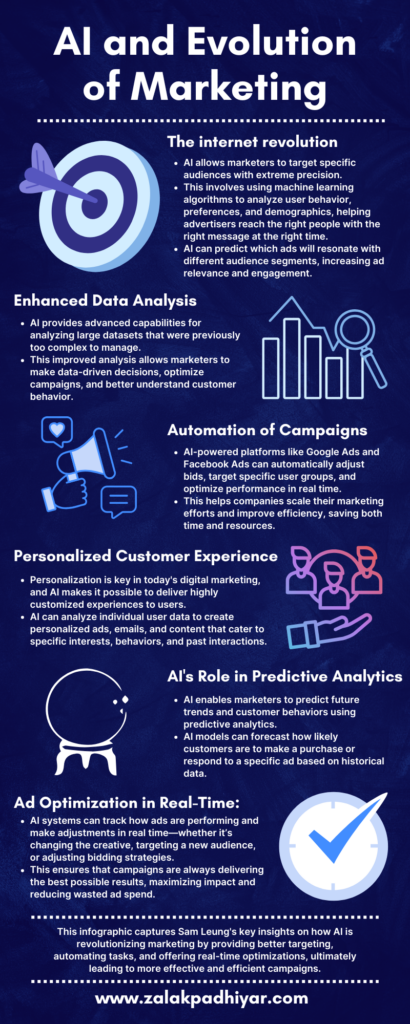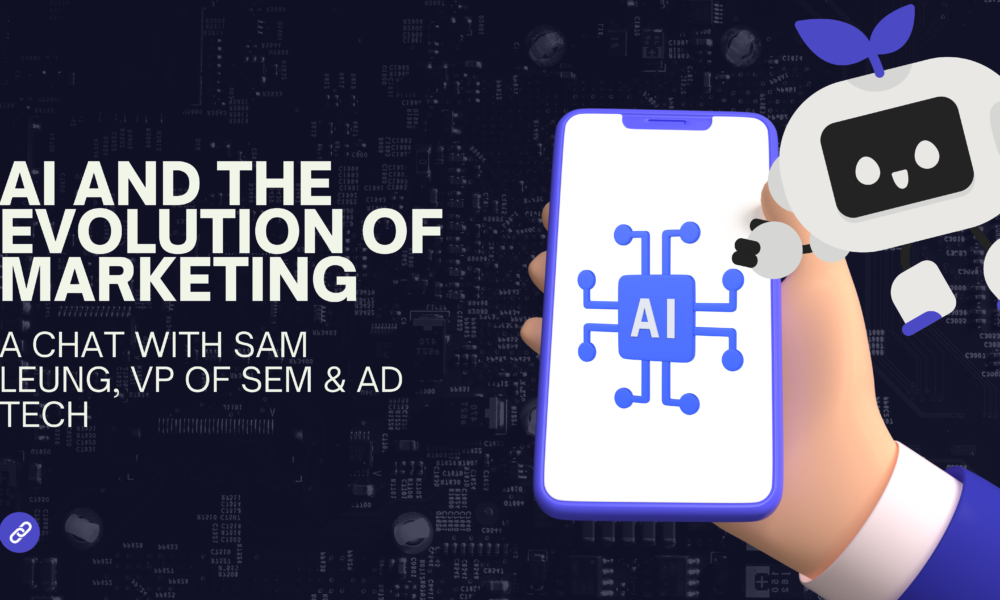Is AI a threat to creativity—or a tool to supercharge it? As someone just starting my marketing career, I’ve asked myself that question more than once. The truth? It’s both, and neither. It depends on how we choose to use it.
Finding My Way in a Tech-Driven Marketing World
As I continue my post-graduate certificate in Digital Media Marketing, I’ve had the chance to connect with professionals who are already navigating the changing tides of this industry. Their advice has helped me understand what it takes to stand out in the real world.
Like many of my peers, I’ve been reflecting on where I want to land in this vast field—and I keep coming back to roles like SEM Coordinator. But as conversations around artificial intelligence keep heating up, so do my questions: Will AI take over marketing jobs? Should I be worried or excited?
That’s why it was such a privilege to hear from Sam Leung, VP of SEM & Ad Tech at The Aber Group, during a recent Zoom class session. His insights didn’t just answer my questions—they reshaped the way I think about AI in marketing.
Lessons from Sam Leung on AI’s Role in Marketing
How AI Is Changing the Game—But Not Replacing It
Sam made it clear: AI is already deeply integrated into marketing, especially in areas like data analysis, ad personalization, and even creative generation. Tools like ChatGPT and Google Gemini are being used to draft everything from email campaigns to ad copy, saving time and boosting productivity.
But here’s the catch: AI is a co-pilot, not the driver. Sam emphasized that human insight is still the heart of great marketing. AI can get us started—but it’s our creativity, judgment, and strategy that turn good ideas into campaigns that connect.

The Challenges We Need to Face
Sam didn’t sugarcoat the road ahead. While AI brings new efficiencies, it also introduces challenges—especially around data privacy. As laws like GDPR and CASL tighten, marketers will have to get smarter about how we use customer data. That means relying more on non-PII (non-personally identifiable information) and being more transparent and ethical in how we build campaigns.
There’s also the risk of becoming too dependent on AI. Predictive models are powerful, but they can’t fully replicate the intuition and empathy that marketers bring to the table.
Reflecting on a Class Case Study: AI Integration Isn’t Easy
In class, we explored a case study about using AI in marketing workflows. Three key hurdles stood out:
- Data Privacy and Ethics: We must ensure compliance and ethical use of data by establishing strong internal guidelines and regular audits.
- Upskilling and Adapting: Marketers will need to learn new tools and develop an understanding of AI-driven platforms. Upskilling is no longer optional—it’s essential.
- Balancing Automation with Creativity: While automation boosts efficiency, real innovation still needs a human spark. Marketers should use AI to enhance—not replace—our imagination.
My Takeaway: The Future Is Ours to Shape
Listening to Sam speak left me inspired. As someone preparing to enter this space, I now see AI not as a threat, but as an opportunity. It’s a powerful tool that can help me work smarter and reach audiences more effectively. But it’s also a reminder: our value as marketers lies in our ability to think critically, create meaningfully, and adapt constantly.
AI can streamline our work—but it’s up to us to give that work heart, purpose, and direction.
Moving Forward with Confidence
Sam Leung’s perspective helped me see AI for what it really is: a tool that reflects the marketer behind it. If we approach it thoughtfully—balancing tech with ethics, automation with creativity—we’ll not only keep up, we’ll lead the way.
As I continue my learning journey, I’m more excited than ever to explore how AI can be part of my future career in marketing—and how I can use it responsibly to create campaigns that matter.

